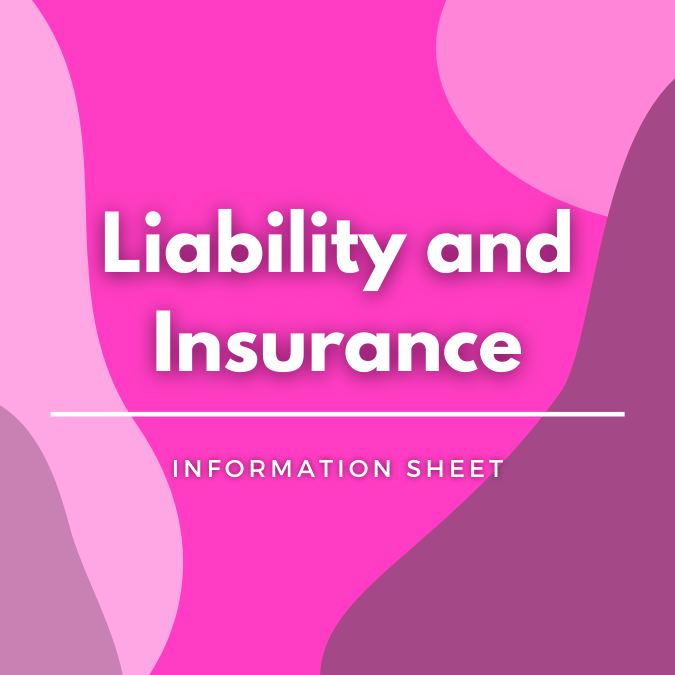Governance
Good governance is crucial for running a healthy organisation. This information sheet describes the fundamentals of good governance and provides links to further resources.
What is ‘governance’?
Governance is about how to run a healthy organisation. It looks at the control and direction of an organisation, particularly the authority given to the Board (or Management Committee), and the accountability and leadership of the organisation.
Governance is relevant to all types of organisations including incorporated and unincorporated organisations, associations and cooperatives. That includes Indigenous corporations set up under the Corporations (Aboriginal and Torres Strait Islander) Act 2006(Cth)(CATSI Act). Many of Australia’s Aboriginal and Torres Strait Island art centres and arts organisations are CATSI corporations.
What does governance include?
In order to assess whether your organisation has good governance, you need to consider why the organisation is there, what are its values, who are its stakeholders (including its employees), and how it does business.
Governance includes all of the following aspects of running an organisation:
· Legal responsibilities
· Financial responsibilities
· Risk management
· Strategic planning
· Human resource management
· Managing the resources
· Networking
· Evaluation
· Making sure the Board works well
This information sheet looks at the first four aspects (legal responsibilities, financial responsibilities, risk management and strategic planning).
Legal Responsibilities
Good governance requires Board or Committee members to make sure that the organisation does what is required to comply with the law. This is an important responsibility.
Constitution
The constitution of the organisation is a legally binding agreement between each member of the organisation and (a) the organisation itself; (b) the Board; (c) the company secretary; and (d) the other members of the organisation. Both the members of the organisation generally, and its board members in particular, need to be familiar with the constitution and be comfortable that the activities of the organisation are conducted in accordance with that document.
For example, a constitution usually contains rules about:
· The purpose of the organisation – it cannot engage in activities for other purposes;
· How meetings can be conducted; and
· How directors are appointed and removed.
Contracts
The organisation must also comply with its obligations under the contracts it has signed: eg leases, funding and staffing contracts. Otherwise the organisation may be exposed to risks of claims and lawsuits against it. For example, many non-profit organisations receive government funding. The rules about how that money must be spent are contained in a funding contract. Under that contract, the organisation usually has obligations to use the money in a particular way by a particular time and to provide a report called an acquittal. Failure to observe the contract may result in athe organisation having to repay the grant funds.
See Artists in the Black’s information sheet on Contracts.
Fiduciary duties
The law imposes special personal responsibilities on the Board and the Committee members called ‘fiduciary duties or responsibilities’. The officers and administrators working in arts and other not for profit organisations also have these personal responsibilities. They include:
1. Duty to be careful and diligent: you must be hardworking and take your responsibilities seriously. You should:
· Receive and read the Board papers in advance;
· Receive and read regular and clear financial reports;
· Check on the implementation of Board decisions;
· Have defined policies in relation to areas of greatest risk, including conflict of interest;
· Have open and honest discussion at Board meetings.
2. Duty of honesty and good faith: you must be loyal to the organisation and act honestly in all your dealings with each other and the organisation. When you are making a decision on behalf of the organisation, you must act in the interest of the organisation overall rather than for your own interest or the interest of individual members.
3. Duty of skill: you must understand the organisation’s business and activities and keep informed and up to date with what is going on. You also need to understand the finances and be able to read the financial statements (accounts) and ask questions about what is (or is not) in those statements.
4. Duty not to make improper use of information: you must not use information you have obtained because you are on the Board or Committee for anything other than the business of the organisation. You cannot use information you obtain to gain an advantage or benefit, either for yourself or any other person.
5. Duty to avoid conflict of interests: you must avoid actual or potential conflicts between your interests and those of the organisation. You must tell the Board if you have a personal or financial interest in anything that is being considered by the Board (eg money or business going to you or family or friends as a result of the decision). You must not vote or be present when the Board is considering any issue in which you have a personal interest.
6. Duty to avoid insolvent trading: you must make sure that the organisation does not incur debts if it is unable to pay them. You can be personally liable for those debts if you do.
7. Work Health and Safety: you must ensure that a safe workplace is established and maintained at all times (see more about this below under “Legislation”).
See also the information sheet on Company Director’s Obligations available from the Australian Securities and Investment Commission (ASIC) website.
Legislation
There is also quite a lot of legislation (also called Acts or Statutes) that may affect the organisation. Good governance means making sure that the organisations is acting consistently with any legislation that applies to it.
Some of the legislation which affects how organisations are run includes:
· Corporations Act 2001 (Cth);
· CATSI Act;
· Acts regulating incorporated associations such as the Associations Incorporation Act 1987(WA) or the equivalent Act in the other states and territories;
· Acts regulating the operation of charities such as the Charitable Collections Act 1946 (WA) or the equivalent Act in other statesand territories;
· Acts regulating cooperatives such as the Companies (Cooperative) Act 1943 (WA)or the equivalent Act in other statesand territories; and
· taxation legislation.
The legislation that affects an organisation’s staffing and employment includes the following Commonwealth Acts as well as their equivalent legislation in the various states and territories:
· industrial relations legislation such as the Fair Work Act 2009(Cth);
· Superannuation Guarantee Act 1992 (Cth);
· Acts regulating occupational health and safety such as theWork Health and Safety Act 2011 (Cth);
· Income Tax Assessment Act 1997 (Cth); and
· anti-discrimination legislation including the Sex Discrimination Act 1984 (Cth).
Each state and territory also has its own legislation covering workers’ compensation. Good governance means understanding the organisation’s responsibilities under this legislation to its employees, to contractors providing services to the organisation, and to volunteers working for the organisation. The laws will apply to each category of worker differently.
See Arts Law’s information sheets on Employment Issues and Superannuation and contract for services.
Financial Responsibilities
The members of the Board or Management Committee are responsible for the finances of the organisation. Good governance means that Board and Committee members should:
· monitor the solvency of the organisation by making sure that it can pay its debts as and when they fall due;
· make sure that a realistic budget is developed each year and that all the Board are involved and committed to that budget;
· get accurate income and expenditure statements, balance sheets and cash-flow projections before Board meetings;
· put financial policies and procedures in place;
· check that employee withholding taxes, superannuation, insurance premiums, GST and similar things are paid when due;
· consider whether the organisation needs a finance committee and, if so, establish one; and
· make sure that financial information is included in the strategic planning for the organisation.
Risk Management
Good governance means understanding and evaluating the business risks facing the organisation and taking action to deal with them. Risk management is making sure you identify the potential liabilities (dangers) that may affect the organisation and the impact they would have on the organisation if they occurred. Risks which could create liabilities include physical risks (fire or theft), financial risks (a recession) and those arising from moral and ethical issues.
The Board should consider what risks affect the organisation and plan how to manage those risks either by:
· taking action to prevent the risk occurring – for example by instituting safe workplace practices to minimize the risk of serious injury to employees;
· providing funds to cover possible liabilities which could arise in the future and which would affect the financial position of the organisation – for example by setting aside money to pay for long service leave of employees which is due; or
· purchasing insurance – for example, to cover risks such as public liability and the loss of stock in the event of fire.
Workers’ compensation insurance will not usually cover organisations for injuries to unpaid volunteers. This means that organisations which regularly have volunteers working for them should also carefully consider purchasing volunteers liability insurance.
Organisations should also consider purchasing directors’ and officers’ insurance to cover the personal liabilities of their board members and other officers that might arise from any breach of the duties referred to in this information sheet.
See also The Arts Insurance Handbook available from the Arts Law website.
Strategic Planning
Good governance means that the Board has a strategic plan for the organisation. Strategic planning is a good opportunity for the Board, the CEO and staff to get together and work out the direction and purpose of the organisation. It can also bring out any problems that need to be resolved. A good strategic plan can convince funders and the community that the organisation knows what it is doing and where it is going.
What is a strategic plan?
The strategic plan is an important working document of the organisation. The following components can be included in the plan:
· Vision– the world you wish to create – how will the organisation look in 5 to 10 years time;
· Mission– the purpose of the organisation – why it exists;
· Values– the principles that inform the way the organisation works;
· Aims or Goals– top-level statements for activities and services;
· Performance Indicators– how you will measure progress towards the goals;
· Objectives /Strategies– how you will fulfil goals;
· Action Programs – practical steps to implement the strategies; and
· Risk Management– the strategic plan is a good place to start when identifying the potential risks and managing the impact they might have on the organisation.
The CEO should report to the Board against the plan on a regular basis and the plan should be reviewed annually.
Further Information
The Office of the Registrar of Indigenous Corporations (ORIC) runs workshops on good governance for officers and directors of Indigenous corporations. For more information see the ORIC website or telephone 1800 622 431.
Messenger, Naomi, Business Structures and Governance: A Practical Guide to the Arts, 2008, available from the Arts Law website.
The Australia Council website has a useful guide Fishel, David, On Board: serving on the board of an arts organisation.
The Council of Social Service of New South Wales (NCOSS) website provides a range of resources designed to enhance the organisational capacity of the non government sector in areas such as human resources, good governance and efficient ‘back office’ operations
A number of useful guides are also available on the Australian Securities and Investments Commission (ASIC) website.
Disclaimer
The information in this information sheet is general. It does not constitute, and should be not relied on as, legal advice. The Arts Law Centre of Australia (Arts Law) recommends seeking advice from a qualified lawyer on the legal issues affecting you before acting on any legal matter.
While Arts Law tries to ensure that the content of this information sheet is accurate, adequate or complete, it does not represent or warrant its accuracy, adequacy or completeness. Arts Law is not responsible for any loss suffered as a result of or in relation to the use of this information sheet. To the extent permitted by law, Arts Law excludes any liability, including any liability for negligence, for any loss, including indirect or consequential damages arising from or in relation to the use of this information sheet.
© Arts Law Centre of Australia
You may photocopy this information sheet for a non-profit purpose, provided you copy all of it, and you do not alter it in any way. Check you have the most recent version by contacting us on (02) 9356 2566 or tollfree outside Sydney on 1800 221 457.
The Arts Law Centre of Australia has been assisted by the Commonwealth Government through the Australia Council, its arts funding and advisory body.




